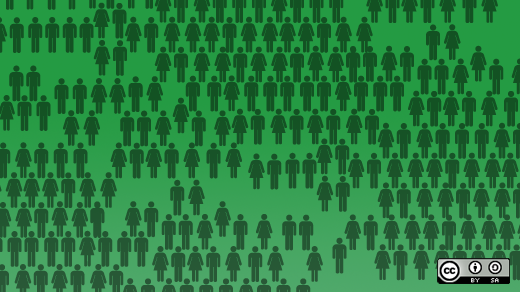There's one major advantage to openness in business. Like the Billy Joel song says, it's just a matter of trust.
Harvard Business Review's Peter Merholz recently highlighted several successful businesses modeled on trust—and, though he doesn't note it, openness.
When Amazon launched, it offered something no one else had — honest customer reviews about every product. Many thought this was foolish, as some products would be poorly reviewed, and thus not sell. But Amazon realized that in order for people to become comfortable with online retail, they needed honest information, and trusted its customers to provide it.
Can you imagine a retailer who would be happy to see disgruntled customers standing in their aisles, telling prospective buyers about every problem they've had with a particular product? Yet by fully opening up their product pages to customers' experiences and opinions, Amazon built a market for purchasing just about anything via the Internet.
While most of us don't make a regular habit of praising or criticizing our purchases to perfect strangers, the collaborative environment of the Internet and its potential for anonymity encourage just that. And it's this openness—combined with highly competitive prices and a smart shipping fee model—that pushed Amazon past the $7 billion sales mark last quarter.
(Merholz profiles two other businesses, Zappos and USAA, that likewise have built promising models around openness and trust.)
Speaking of trust, Facebook recently announced that information on users' profile pages—including past and present employers, alma matters, interests, even cities and towns of residence—will now be used publicly. Concerned about privacy? You can block your friends from seeing this information, but it will be available publicly to anyone visiting the "connection pages" for those places, businesses, etc. (Because clearly people are more concerned about their friends knowing where they live and work than random people from the Internet?)
Of course, Facebook software engineer Alex Li reminds us, "if you don't want to show up on those Pages," you can disconnect. Though as far as your Facebook friends are concerned, you'll no longer have an employer, city of residence, favorite movie, or bachelor's degree. It does make a person wonder about CEO Mark Zuckerberg's short term memory, considering he reassured Facebook users just a few months ago that Facebook's "philosophy is that people own their information and control who they share it with."
I'm reminded of an article Dana Blankenhorn wrote a few years back, where he noted that trust lies at “the heart of open source.” Trust is what motivates software coders to open up their projects to communities of strangers. It drives a CIO to choose an open source vendor, who won't lock them into a particular technology or brand. And it is broken when a social networking (and advertising) business repeatedly strongarms its users into pushing their private information out to the world.
Want to do business the open source way? Start by trusting your customers... and be the kind of business that others can trust.






4 Comments